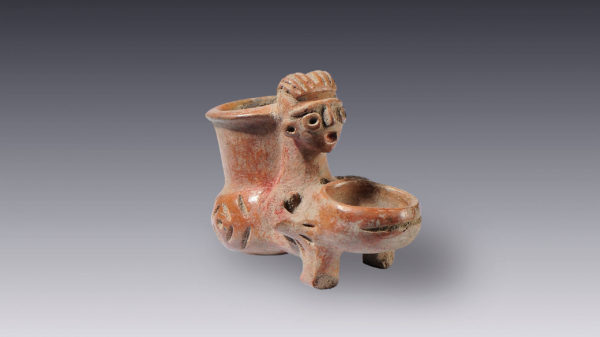For parents of premature babies, the world revolves around ensuring their tiny fighters have the best chance at a healthy future. However, a shadow of fear and uncertainty can be cast by a devastating intestinal illness known as Necrotizing Enterocolitis (NEC). This condition, primarily affecting premature infants, can have life-threatening consequences.
Adding another layer of complexity to this already challenging situation are recent lawsuits against major cow’s milk-based formula companies. These lawsuits allege a potential link between these formulas and an increased risk of NEC in premature babies.
This article discusses the devastating impact of the disease on premature infants and their families. We’ll explore the physical, emotional, and financial burdens associated with this illness. We’ll also shed light on the ongoing legal battle surrounding cow’s milk formula and the concerns raised about its safety for vulnerable newborns.
Vulnerability of Premature Babies
Premature babies, those born before 37 weeks of gestation, face a multitude of challenges. Their bodies are still under development, and their organs, including their digestive systems, are especially immature. This immaturity makes them more susceptible to complications like NEC, a serious intestinal illness.
According to WebMD, NEC primarily affects premature babies, with a higher risk for those weighing less than 3.25 lbs. It typically occurs within the first two weeks of life, often in formula-fed babies. In a healthy digestive system, the intestinal lining acts as a barrier, preventing harmful bacteria from entering the bloodstream. However, in premature babies, this barrier is weaker.
The disease starts with inflammation in the intestinal wall, often triggered by factors like formula feeding or bacterial invasion. This inflammation can then lead to tissue death (necrosis) in the colon and intestines.
A particularly devastating consequence of NEC is the formation of a crack or perforation in the intestines. This allows bacteria to leak into the abdomen, causing a life-threatening infection known as sepsis.
The high mortality rate associated with this disease is a source of immense fear and uncertainty for families. The rapid progression of the illness and the potential for complications like sepsis create a desperate fight for survival.
The Medical Challenges of NEC
Premature babies diagnosed with NEC face significant medical challenges that can impact their health and well-being. According to MedlinePlus, treatment typically involves halting enteral feedings, relieving gas in the bowel, and providing intravenous fluids and antibiotics. Close monitoring through abdominal X-rays, blood tests, and blood gas measurements is essential to assess the condition’s progression.
In severe cases of NEC, surgery may be necessary to address complications such as intestinal perforation or inflammation of the abdominal wall (peritonitis). During surgery, dead bowel tissue is removed. Additionally, in some cases, a colostomy or ileostomy may be performed to redirect waste from the intestines. The bowel may be reconnected once the infection has healed.
These medical interventions are often accompanied by prolonged hospitalization, exposing premature infants to the risks of infection and nutritional deficiencies.
Cow’s Milk Formula and its Alleged Link to NEC
The ongoing lawsuits against major formula companies, such as Similac and Enfamil, have brought to light a concerning allegation. There’s a potential link between cow’s milk protein in formula and an increased risk of NEC in premature babies.
According to KSDK, parents like Matt and Susan Leas express concern about the lack of awareness regarding the disease and its link to formula feeding. Their premature twin, Sophia, who was fed cow’s milk-based formula, was diagnosed with NEC.
The Leas, along with thousands of other parents across the country, have taken legal action against formula manufacturing giants Abbott and Mead Johnson. The lawsuit seeks accountability and hopes to bring about changes in the way premature infants are fed in NICUs.
Their lawsuits underscore the need for transparency and awareness within the infant formula industry to ensure the safety of vulnerable premature babies.
Verdict in Groundbreaking NEC Lawsuit against Mead Johnson
In a groundbreaking NEC lawsuit update, a St. Clair County Jury recently reached a verdict in a case against baby formula manufacturer Mead Johnson. The jury found the formula manufacturer liable for failing to adequately warn parents about the increased risk of NEC in premature babies fed their formula. This verdict, awarding the plaintiffs a staggering $60 million, far exceeded the requested amount.
According to TorHoerman Law, this case is part of a larger multidistrict litigation involving over 330 similar lawsuits nationwide. The lawsuit centered on the tragic loss of a premature twin allegedly due to NEC complications after being fed cow’s milk-based formula.
While the scientific debate regarding the exact link between the formula and the disease continues, the jury’s verdict sent a powerful message. It acknowledged the potential risks associated with cow’s milk-based formula for vulnerable premature infants.
The Physical and Emotional Toll of NEC
The impact of the disease extends far beyond the sterile walls of the NICU. Parents of premature babies diagnosed with NEC face a devastating emotional and financial burden.
A crushing sense of helplessness often follows the initial shock of diagnosis. These parents, who have already experienced the emotional rollercoaster of a premature birth, now face the fear of losing their fragile child.
Every medical update, every setback, becomes a source of immense anxiety and worry. The feeling of guilt, even if unfounded, can be overwhelming. Parents may question their feeding choices or wonder if they could have done something differently to prevent this illness.
The physical toll of the disease is mirrored by the emotional toll on families. Witnessing their tiny babies endure invasive procedures and grapple with pain can be heartbreaking. The long hours spent at the NICU, the constant worry, and the emotional strain of an uncertain future take a significant toll on parents.
Adding to this burden are the exorbitant medical expenses associated with treating the condition. The extended hospital stay, specialized care, and potential surgeries can quickly lead to financial hardship.
Many families face the difficult choice of incurring significant debt or jeopardizing their job security to pay for their child’s medical needs. The potential need for long-term specialized care or rehabilitation after NEC adds another layer of financial worry.
Frequently Asked Questions
How do you treat NEC in the NICU?
In the NICU, treating the disease involves halting regular feedings and providing nutrients through an IV catheter. A nasogastric tube is inserted to suction air and fluids from the stomach, alleviating swelling and discomfort. This approach aims to rest the intestines and prevent further complications.
Can NEC be cured?
NEC can be treated, and many babies recover with little or no lasting effects. However, ongoing monitoring is necessary as some babies may experience future issues related to the intestine or digestive tract despite initial treatment.
How long does it take a baby to recover from NEC?
Recovery from NEC varies for each baby. Mild cases may resolve in a few days with treatment, while severe cases may require weeks or longer. Continuous monitoring is crucial during recovery, and the duration depends on the severity of the condition and any associated complications.
In conclusion, NEC casts a long shadow on the lives of premature babies and their families. The medical challenges are immense, the emotional toll profound, and the financial burden crippling. The ongoing lawsuits against formula companies highlight the need for further research and potentially safer alternatives for feeding vulnerable premature infants.
However, the story of NEC doesn’t have to end here. The unwavering strength of families fighting for their babies is a beacon of hope. The ongoing legal battle catalyzes change, pushing for increased awareness and potentially better practices within NICUs.










